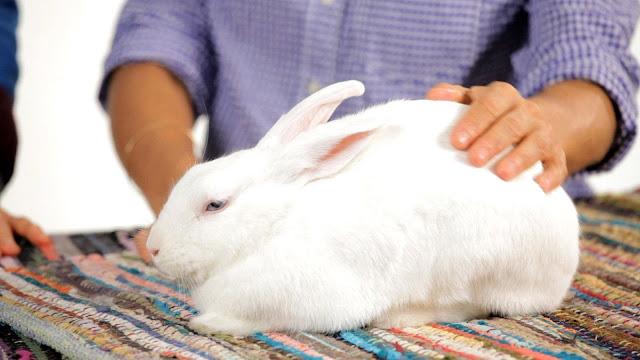Delightful Treats: Can Rabbits Eat Grapes?
Rabbits are not just adorable companions; they're also known for their unique dietary preferences. While hay and fresh vegetables make up the bulk of their diet, many rabbit owners wonder about the suitability of various fruits as occasional treats. One such fruit that often piques curiosity is grapes. So, can rabbits eat grapes? or can rabbits eat green grapes? Let's explore this question with a mix of scientific insight and a warm, human touch.
The Basics of a Rabbit's Diet
Before diving into the world of grapes, let's understand the fundamentals of a rabbit's diet. These furry herbivores have specific dietary requirements that primarily consist of hay, fresh vegetables, and a smaller amount of pellets. Fiber-rich hay, such as timothy or orchard grass, is essential for their digestive health. Vegetables like dark leafy greens, carrots, and bell peppers provide vital nutrients. And finally, pellets are a concentrated source of nutrition.
The Grape Dilemma: Nutritional Content
Now, let's turn our attention to grapes. Grapes are small, juicy, and undoubtedly delicious. They come in various colors, including red, green, and black, and are often enjoyed as snacks by humans. But what about rabbits?
Grapes are a mixed bag when it comes to their nutritional profile. On one hand, they offer a sweet and refreshing taste that many rabbits find appealing. Grapes contain essential vitamins and minerals like vitamin C, vitamin K, and potassium. However, they are also relatively high in sugar and natural fruit sugars like glucose and fructose.
The Sugar Conundrum: Is It Safe for Bunnies?
The sugar content in grapes is where the rabbit grape debate takes center stage. While rabbits are known to enjoy the occasional sweet treat, their digestive systems are highly sensitive. Feeding them too much sugar can lead to digestive upset, obesity, and even dental issues.
So, the human touch here involves moderation and care. While grapes can be offered as a treat, they should be given sparingly. A small slice or a single grape is a delightful and safe indulgence. However, a bunch of grapes should be avoided, as it could overwhelm a rabbit's delicate digestive system.
The Human-Animal Connection
Here's where the human-animal connection becomes paramount. Responsible rabbit owners must pay attention to their pets' reactions and sensitivities. Each rabbit is unique, and their ability to tolerate grapes may vary. Some rabbits may have a sweet tooth, while others may show less interest in this particular fruit.
When introducing grapes into your rabbit's diet, it's essential to observe their response. Watch for any signs of digestive discomfort, such as diarrhea or a change in stool consistency. If your bunny doesn't seem to enjoy grapes or experiences any adverse reactions, it's perfectly acceptable to skip this treat altogether. The bond between a pet owner and their furry friend lies in understanding and accommodating their individual preferences and needs.
Balancing Variety and Safety
Variety is the spice of life, and this principle applies to a rabbit's diet as well. Offering a range of healthy treats can enrich your rabbit's life and keep their taste buds tantalized. This includes an array of fresh vegetables, herbs, and the occasional fruit like grapes.
However, it's crucial to maintain a balance. Rabbits should never be fed grapes in excess. The majority of their diet should consist of hay and fresh vegetables. Grapes should be seen as an occasional, special treat rather than a daily indulgence.
Human Safety and Handling
While we're discussing grapes and rabbits, it's important to touch upon human safety and handling. When offering grapes to your rabbit, wash them thoroughly to remove any potential pesticides or contaminants. Additionally, consider breaking grapes into smaller, manageable pieces to reduce choking hazards.
Human hygiene is another aspect to keep in mind. After handling grapes or any other food, wash your hands before interacting with your rabbit to avoid transferring any unwanted substances or odors.
Alternatives to Grapes: A Human Touch
If you're concerned about the sugar content in grapes or your rabbit simply isn't a fan, there are numerous other treat options that can provide a similar level of delight. Consider offering small amounts of other fruits like apple slices (without seeds), strawberries, or slices of banana. Additionally, fresh herbs like parsley, cilantro, and mint can be irresistible to rabbits and are a healthier alternative to sugary treats.
Remember that your rabbit's well-being is the top priority. The human touch in this context is all about ensuring their happiness and health through thoughtful treat choices.
In Conclusion: Grapes in Moderation
In the complex world of a rabbit's diet, the answer to whether rabbits can eat grapes is a nuanced one. Grapes, with their sweet and juicy allure, can be a delightful treat for your furry companion. The human touch in this equation involves offering grapes in moderation, being attuned to your rabbit's unique preferences, and prioritizing their well-being.
As with any aspect of pet ownership, it's all about the bond and connection you share with your rabbit. By approaching their diet with care and understanding, you can ensure that their lives are enriched with both love and the occasional sweet grape.




Comments
Post a Comment